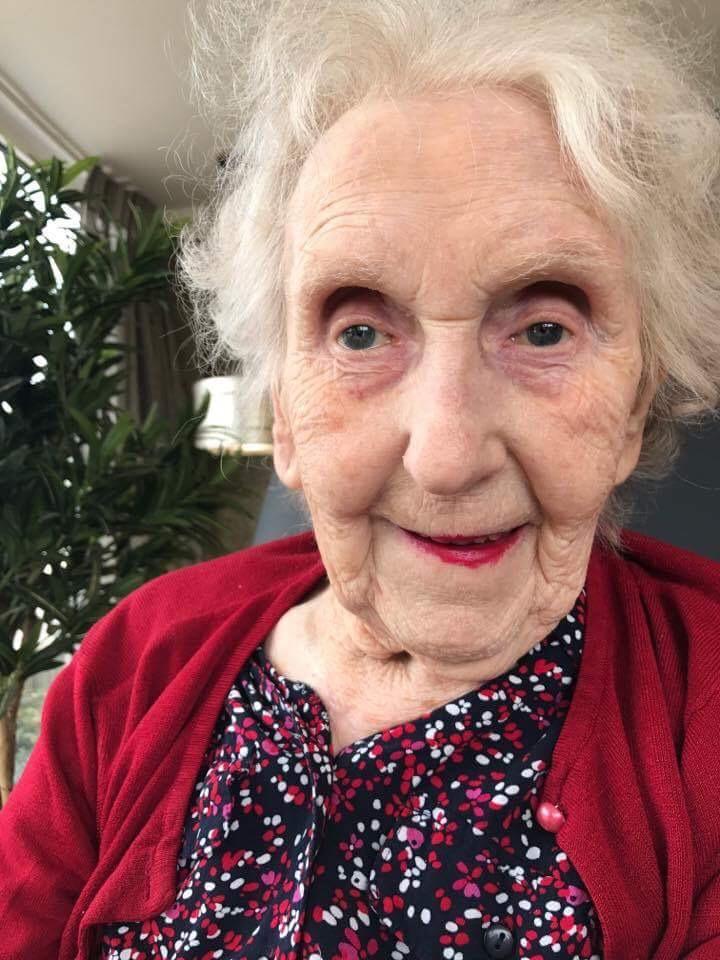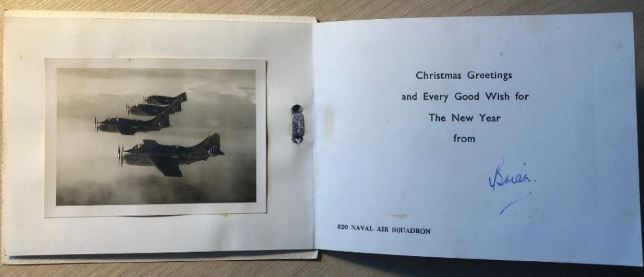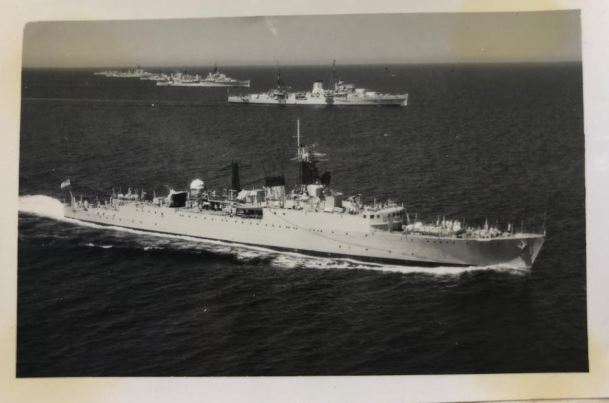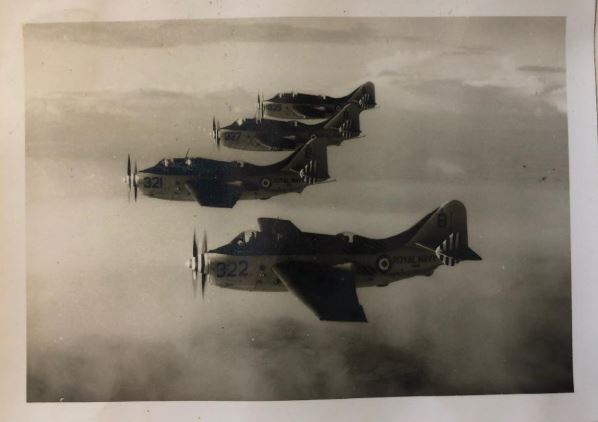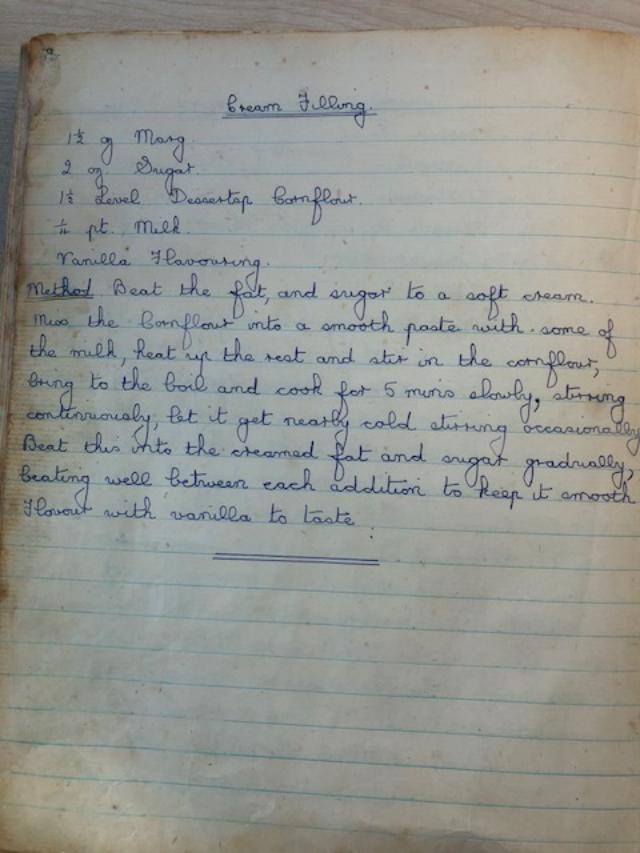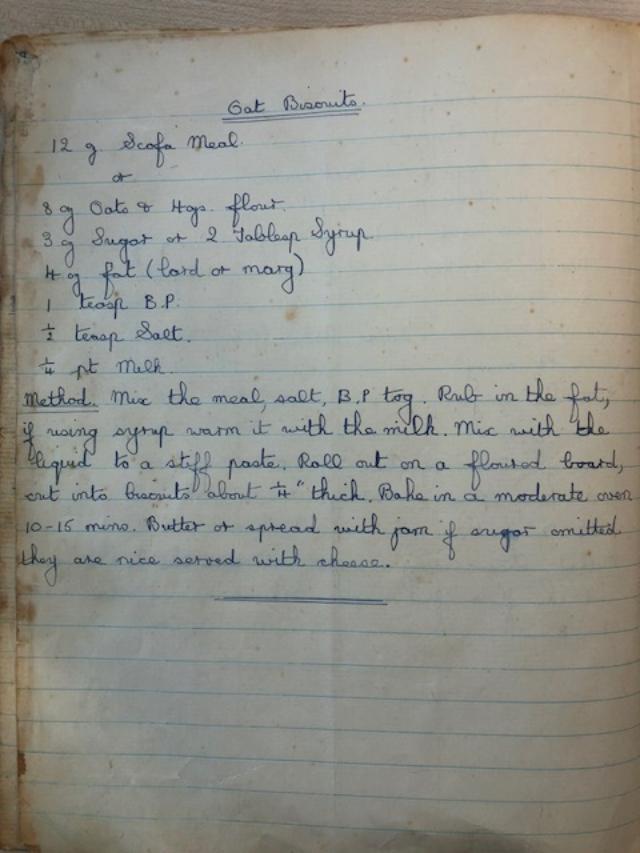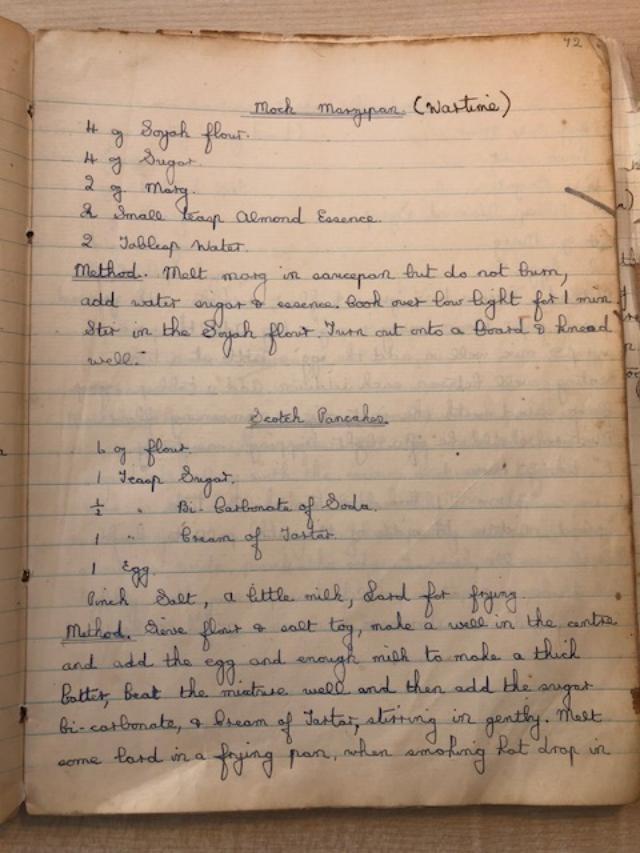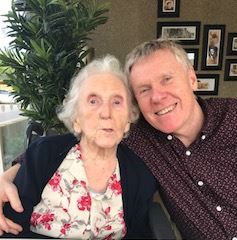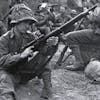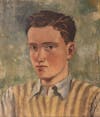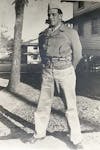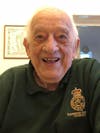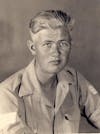33 Women at War 2 - Wartime Recipes and WRENS
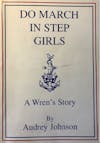
Culinary survival skills and a Women's Royal Naval Service morse coding memoir
A Wren's Story, by Audrey Johnson - the memoirs of a WREN in a signals team during WW2, based in N Ireland.
How Anne Cheall made the best of limited rations with her wartime recipes.
More great unpublished history - of the Second World War.
https://en.wikipedia.org/wiki/820_Naval_Air_Squadron
YouTube channel - Loads of my own videos - Dunkirk Mole, Gold Beach, more ...
Feedback/reviews in Apple Podcasts - Thank you.
Anne Cheall
Greetings cards sent to Mum by a friend and admirer, Brian Reilly, from 820 Naval Air Squadron
Interested in Bill Cheall's book? Link here for more information.
Fighting Through from Dunkirk to Hamburg, hardback, paperback and Kindle etc.
Anne Cheall, Mum, with me.
FT Podcast Ep 33 - Women at War Part 2, ww2
Wartime recipes and WRENS -- WW2 history podcast
….
Great unpublished history!
Intros
Learn about Anne Cheall’s culinary skills, learnt over several years at college whilst she put them to good use in keeping hunger at bay. Learn her secret recipe for Carrot and Cheese pie and other delightful tummy fillers.
Hear passages from a memoir about the WRENS during WW2 – Women’s Royal Navy Service. Starring a lady, Audrey Johnson, whose magnificent morse code adventures lead her to encounters with the English, Poles, Irish, Americans and much more.
Find out what the bridegroom said to the bride during Audrey’s testing times learning all about Morse code
And find out how a smallpox outbreak in Glasgow seriously threatened to do far more harm than German bombing
Hello again
I’m Paul Cheall, son of Bill Cheall whose WW2 memoirs have been published by Pen and Sword – in FTFDTH.
The aim of these podcasts is to give you the stories behind the story. You’ll hear memoirs and memories of veterans connected to Dad’s war in some way – and much more.
Before I get into the main meat of the episode I’d like to turn to the regular feedback and listeners’ stories feature,
Andy – Warriors podcast, ww2 wwii
First, I’d like to mention another podcast brought to my attention by Andy Dryden, called Warriors in their own words. It’s mainly American and some British accounts of WW2 and other wars. I’ve just been binge listening and it’s quite superb. It’s essentially interviews which were done many years ago with veterans who had terrific recall of the smallest details of some horrendous fighting actions, many of which individually could be made into a movie.
And the guys being interviewed were very humble and factual about it, which is what we so often find from men who really were in the thick of the action. But my overall feeling is one of being extremely proud that our allies included these Americans who went through some of the toughest brutal action imaginable, helping us cover each other’s backs. Take a listen to episode 107, US Rangers on D-Day. Then start your binge listen with episode 1! Warriors in their own words.
Another podcast well worth looking out for is Bletchley Park, all about the code breakers who helped break the enigma code, the secret German cypher. It’s got some seriously good stories connected with this code-breaking operation and its impact on the war. That’s Bletchley Park,
Feedback
Clare Palmer, England – hi Clare
Salop Saddler from UK
Hair raising stories left me filled with so much admiration for ordinary folk that were thrust into horrific circumstances. The two Fred Reynard Gallipoli episodes are two that really put you right in amongst it.
Listener I’d certainly agree with that comment and if you haven’t heard episodes 16/17 on WW1 battle of Gallipoli then you’re missing a real treat – though I’m not sure Fred Reynard would agree with that!
Johnny W52 from UK
Kind comments together with: “The Wilf Shaw episodes were fascinating and so good of him to share his experiences. I listen to these in the car and I always look forward to the next episode.
Ken Millighan
Paul, I listened to the recent podcast and wanted to say what an honor it was to hear you speak of my Granddad! I got goosebumps all over, I called his daughter in Arizona to listen to it and she cried tears of joy.
Then, Monday of this week when I arrived home from work there was a package, when I turned it over and saw the Union Jack return address I was like a child at Christmas yelling “ my book my book!”
I showed my oldest son who is 25 and youngest 9 the book and photos ... they were impressed.
Regards,
Ken
PS your mom is wonderful!
Well Ken thanks for that feedback – at your service sir. And my Mum smiled when I told her you thought she was wonderful!
Hi Paul
I've been an avid ww2 history buff since I was a kid and coming from the Teesside area its great to hear about a local regiment and to hear about local places and stories I haven't heard before. The stories have reignited my interest in trying to track down details of my grandfathers involvement in ww2.
I spent most of my school days at my grandfathers and he never mentioned any part in ww2. He passed away in 1992. Over the years my father did some family history and found my grandfather had been a fireman at the local ICI plant so had a protected occupation and we thought that was all he did.
In early January this year my mother passed me a small box containing a few old coins that had belonged to him. Amongst them was a RAF half wing with a letter B in the centre. My mother said she remembered a photo of granddad in RAF uniform on the boating lake in Scarborough.
I discovered online that the badge was that of either a Bomb aimer or Navigator.
Searching forces records I found a hit with my grandfather’s enrolment with the Local Defence Force dated 1st July 1940. However his discharge date is listed as 23rd September 1944. Reason listed as Joined the RAF.
I managed to obtain his service record from the RAF. It shows he was trained as an Air Gunner "A". However he appears to have never been sent to a squadron. It has him listed as serving 127 day service of which only 7 were qualified. It has him listed a being discharged as Surplus to requirement on the 1st December 1944. With some assistance from a RAF research facebook group I have learnt the regulation code listed next to his discharge refers to Compassionate Reasons. I don’t think the family will ever know what happened at this time.
I was lucky that the Durham LDF/Homeguard records have been digitised otherwise I would have never been able to start the journey. The only English county to do so as far as I am aware. I’ve managed to piece together that his homeguard regiment was 19th Battalion Durham light Infantry which covered the Stockton area. I have unfortunately been unable to find any details of anything they did during the war.
This brings me back to the badge. I hadn’t been able to find an example of the badge so posted a photo of it to the RAF research facebook group. It was pointed out that it wasn’t a standard badge but most likely a "sweetheart brooch", specially made for servicemen to leave with their loved ones when they went away. We don’t know why this badge was kept.
So that’s where I was before your podcasts. Since I started listening I’ve restarted looking into the 19th battalion and what my grandfather may have done. I’ve tracked down photos of the battalion and hope to look through my mother’s photo collection to try to identify him.
Thank you for all the time and effort you put into your show. Please keep going.
Regards, Dave D.
Dave thanks for that. I think you’ve started on a journey that I started myself not all that long ago, but I was extremely lucky that Dad’s memoir gave me a great start to learning more about his war. Dave, try the WW2Talk.com forum for your research if you haven’t already. If you do dig out any interesting history on your grandad, do get in touch again. For now, thanks for making the effort to write in and give my regards to Peasholme park in Scarborough – I recall going there often as a lad and watching the naval war battles being re-enacted with model ships. And finally say hi to Beaky for me!
Yohanna Yung from Sweden has been in touch
She said Hi Paul.
I recently found your WW2 podcast on Spotify and it is now what I listen to at work. I am a 23 year old, Swedish welder and sit between 7am and 4pm just amazed by the stories you tell.
My Fiance and I are military fanatics and I am so grateful for you sharing so many untold stories and aspects that no one talks about.
My grandparents, born in the 1930’s, never wanted to talk about what their experience was during the war. And even if Sweden wasn't active like other countries some stuff did happen here.
Sadly my grandfather passed away last Christmas and I now only have my grandmother left, I hope I can get her to talk at least a bit about it.
I find myself almost crying sometimes but often smiling when listening. One of the moments that struck me the most was in the episode of Lancaster Lily Mars when you read the letter the Australian man wrote his parents. It was so loving but oh so heartbroking to hear, WW2.
Next time I visit my grandmother I will absolutely ask her about the war, WWII podcast.
You’ve made me want to save the last pieces of both my heritage and the memories of my relatives.
Well, Yohanna, it was good of you to share all this and I’m so grateful for that last sentiment because it helps to make my work on this podcast so very worthwhile and rewarding.
In fact Yohanna and I have been in touch and if she can get her Grandma to share some of her wartime memories she’s going to send it in and we’ll share it on a show.
Anyway, onto Wartime Recipes.
Because of the challenges of importing certain things during the war, many things had to be rationed and that was done using ration books which each family was issued with. As a result families had to find ways to manage. You’ll have heard a little about it in the previous episode, 32 Women at War, but I wanted to expand a little on the wartime recipes bit mentioned by my Mum, Anne Cheall. So what follows is a few brief conversations I had with her at various times on the subject of how she made the best of what provisions were available. WW2
Mum
Mid recording:
According to Wikipedia, to buy most rationed items, each person had to register at chosen shops, and was provided with a ration book containing coupons. The shopkeeper was supplied with enough food for registered customers. Purchasers had to take ration books with them when shopping, so that the relevant coupon or coupons could be cancelled. Strange by comparison how these days we can pick and choose what we buy from any store we choose. Back to Mum
Interlude
You’re listening to the FTP, Ep 33 Wartime Recipes and WRENS WWII
At end:
So there you go, Mum wrote up all her recipes in a notebook and I’ve copied them into the shownotes if anyone is interested. In fact I’ve set up a download link to a word document for anyone who’s interested to learn more. If anyone does prepare anything from the recipes, do get in touch.
But here’s just a couple of Mum’s that I’m going to share with you in brief now.
Speak pipe feedback
I just want to share this feedback with you from Justin Delcorpo. He sent it via the contact page on my web site, via a facility called speakpipe, where literally all you have to do is click on a link and speak.
Here’s Justin:
End of Audrey
Thanks to Audrey for her great contribution to ww2 history – some seriously good stuff in her story. I should stress that the amount of material I took from the book was only a very small proportion of the whole book, so I hope this episode inspires people to want to hear the rest of the story, which is Do March in Step Girls by Audrey Johnson.
I did write to her at the address from her book in Somerset England but sadly got no reply, but if there are any of Audrey’s relatives listening, please do get in touch, I’d love to hear from you. This is what I said in my letter just in case you’re listening: Audrey, I realise you must be well into your 90’s by now; and I hope this letter finds you in sufficient health to appreciate my expression of admiration and gratitude for a book well-written. There are some precious historic gems within the pages and these stories become more and more important as time goes on. Your book is still read and indeed collected. Thank you.
Before I move on I’ll apologise for my American accent during that epsiode. It’s funny but I always thought it was easy doing American accents, until now! I hope you had a good laugh at it anyway!
Next episode
I’m working towards a Dunkirk revisited episode with numerous bits of feedback and follow-ups on the various stories we’ve already heard. If you have anything to add about the battle of Dunkirk– do please drop me a line. I recently had the most incredible email from a Frenchman Benjamin Bourel whose grandfather was at Dunkirk and I’m investigating that a bit further but it’s a fantastic bit of news that I hope to share with you sometime.
Dorothy McQuillen has also written in with rather a sad tale about her uncle.
The promised interview with veteran Stanley Perry was delayed and is now taking place middle of September so that’s going to be coming up soon. We’ll learn how he received multiple wounds in action during the Normandy campaign amongst other things. I’ve already spoken to him on the phone and the words tanks, SAS and POW camp adjutant all featured in his vocabulary – oh yes, not forgetting Normandy and the Legion D’Honneur medal.
Coffee with Stanley will be published at the earliest opportunity. I can’t wait.
But as for the very next episode, I’ve decided to make use of a recording Wilf Shaw RIP gave me of a comrade being interviewed by someone many years ago. It’s a chap called Freddie Linacre.
Extract?
PS
John Dady
Hi Paul
A story I remember from my Mum was that she was walking home from school over the bridge at Chadwell Heath train station when a WWII Messerschmitt flew down the railway lines and opened fire. A random bloke grabbed her and dragged her to the ground, probably saving her life. Whenever we used to go over there on the bus she used to tell me how she was nearly killed by those Germans.
I have been thinking back to when I was a kid in the late 60’s early 70’s. My mum still used to serve up food that she used to eat during the war. I don’t think that the kids of today would eat these meals!
Pigs trotters, whole roast pigs head, lambs hearts, liver and bacon, corned beef and spam fritters.
No McDonald’s or KFC for us.
WWII WW2 podcast history
References in the book:
Melville Hotel Londonderry
Mathers Hotel Dundee
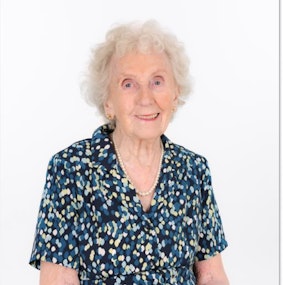
Anne Cheall
Mum!
My late Mum, Anne Cheall. Aged around seventeen during the war, she's got loads of tales to tell about working in a bomb factory and making ends meet with food rations, together with a delightful reminiscence of a young girl's countryside holiday with friends, for one moment forgetting the strife going on in the wider world.
Anne had a degenerative eye disease and could not read in later years - but she delighted in listening to my podcasts which I downloaded onto a disc for her and which she listened to again and again.
So I hope I am playing some small part in bringing this rare history to an audience who would otherwise so often be the last to hear it. And my Mum's own wartime experiences have inspired several episodes of this podcast. I recently discovered that 10% of my listeners are using the Victor Reader technology aimed at people with sight difficulties.
Mum died 28 December 2018.
Featured Episodes
If you're going to binge, best start at No 1, Dunkirk, the most popular episode of all. Welcome! Paul.
PS. Just swipe left to browse if you're on mobile.










